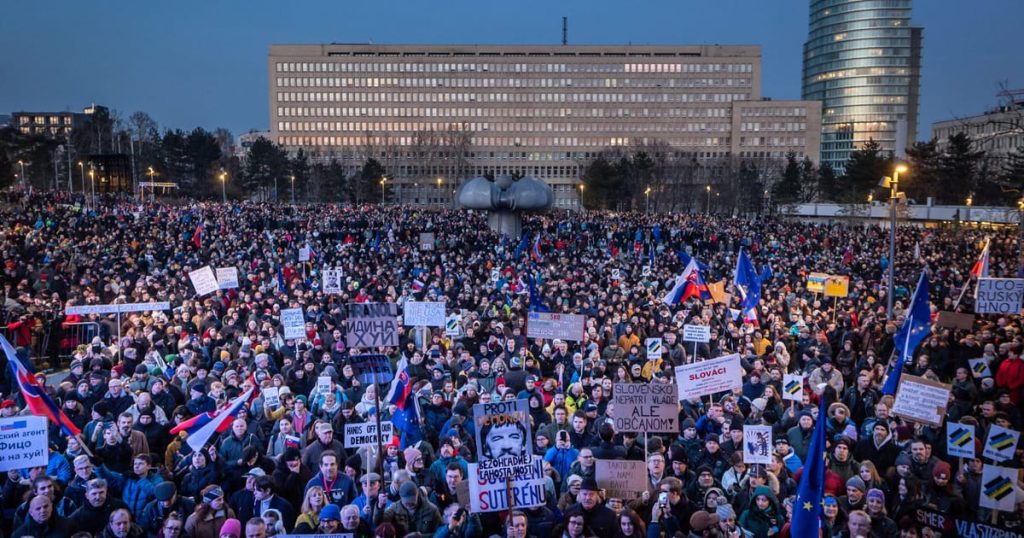The re-election of Robert Fico as Slovakia’s Prime Minister in October 2023 marked a significant shift in the country’s political landscape, triggering widespread protests and raising concerns about its future direction within the European Union. Fico, a former member of the Communist Party serving his fourth term as leader, has adopted a pro-Moscow stance, starkly contrasting with the prevailing sentiment in Europe following Russia’s invasion of Ukraine. This shift has galvanized a substantial portion of the Slovak population who fear a drift away from democratic values and closer alignment with authoritarian regimes.
The focal point of the growing discontent is Fico’s foreign policy, characterized by a distinct tilt towards Russia. His December 2022 meeting with Vladimir Putin in Moscow, a rare occurrence for a European leader in the aftermath of the Ukrainian invasion, underscored this shift. Further solidifying this pro-Russian stance, Fico’s government ceased Slovakia’s military aid to Ukraine and actively campaigned against EU sanctions imposed on Russia. These actions have fueled anxieties among many Slovaks who view them as a betrayal of European solidarity and a move towards isolating Slovakia from its Western allies.
Adding fuel to the fire, members of Fico’s Smer party have openly discussed the possibility of Slovakia leaving the European Union. This rhetoric, once considered fringe, is now gaining traction within mainstream political discourse, further alarming those who see EU membership as crucial for Slovakia’s economic prosperity and democratic stability. The prospect of an “Slexit,” mirroring the UK’s departure from the EU, has become a tangible concern, amplifying the sense of unease and prompting increased activism among pro-European Slovaks.
In response to these developments, the “Slovakia is Europe” NGO organized a series of protests across the country. These demonstrations brought together thousands of citizens expressing their opposition to Fico’s policies and demanding his resignation. They voiced concerns not only about the foreign policy shift but also about broader issues of governance, including a perceived decline in transparency and accountability. The protests represent a significant mobilization of civil society, signaling a growing resistance to what many perceive as an erosion of democratic norms.
The sentiment among protesters is captured by the words of Eva Kulová, an 84-year-old who addressed a crowd of 7,000 in Prešov, a city near the Ukrainian border. Her statement that “the specter of a coup haunts them [the Fico government] day and night” encapsulates the fear that Fico’s actions are undermining the democratic foundations of the country. This perception of a potential power grab, fueled by Fico’s increasingly authoritarian rhetoric and policies, underscores the depth of anxiety among those who believe he is steering Slovakia towards an illiberal future.
The protests and the broader societal unease reflect a deep polarization within Slovakia. While Fico enjoys support from a segment of the population, his pro-Russian policies and increasingly authoritarian tendencies have alienated a significant portion, particularly those who identify with European values and aspire to a closer relationship with the West. The future of Slovakia remains uncertain, hanging in the balance between these opposing forces. The outcome of this struggle will have significant implications not only for Slovakia’s domestic politics but also for the broader geopolitical landscape of Central Europe. The protests are a testament to the strength of pro-European sentiment within the country, and their continued pressure could play a crucial role in shaping Slovakia’s trajectory in the years to come.














